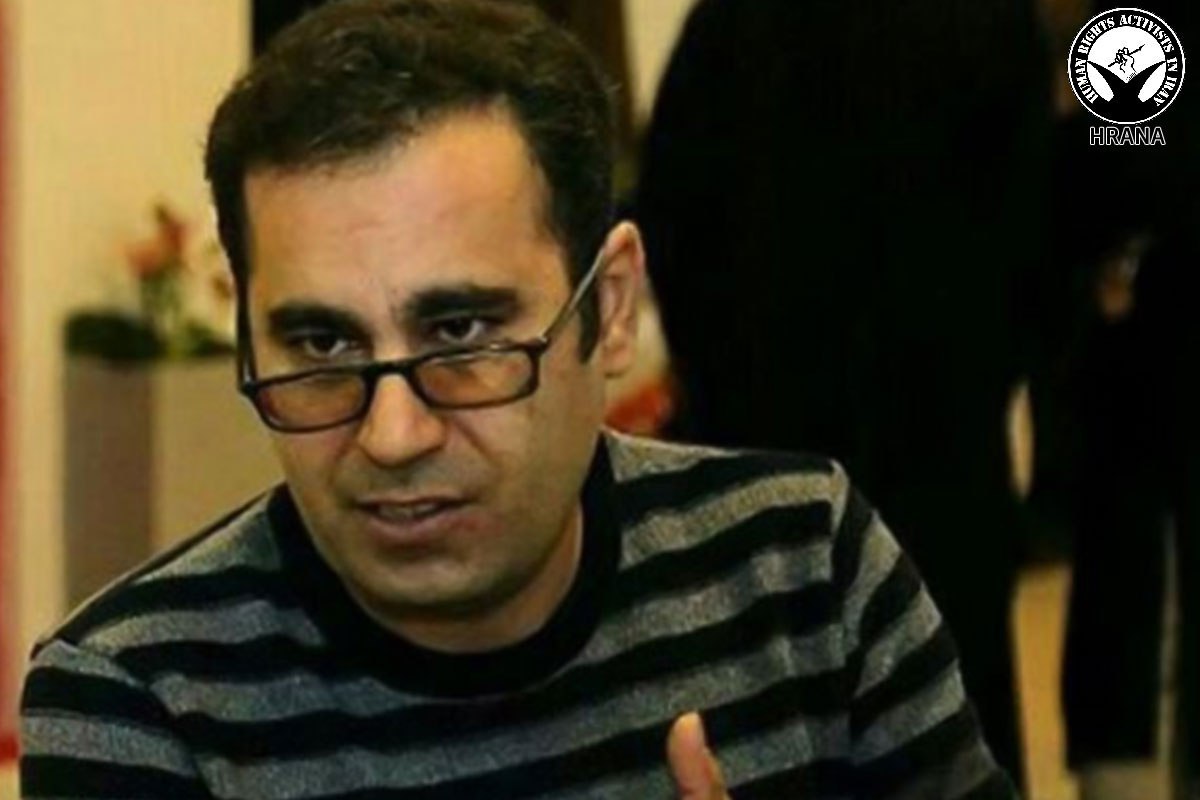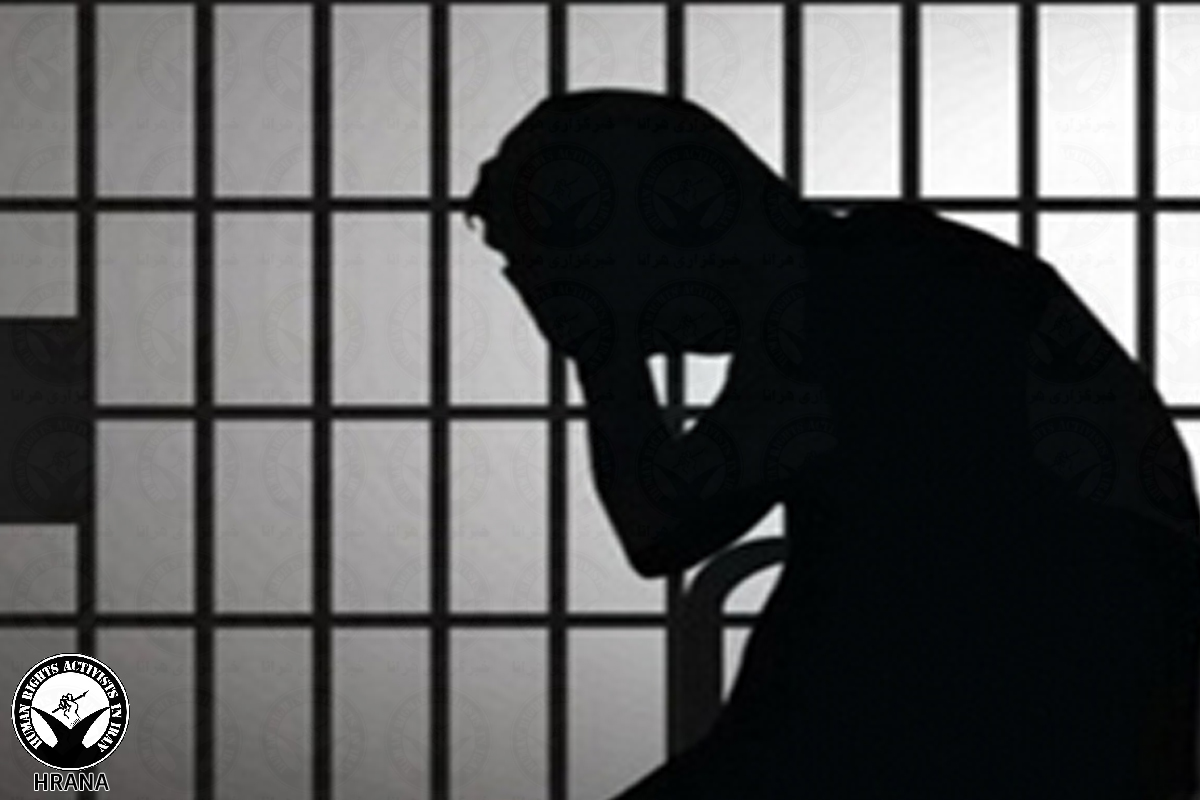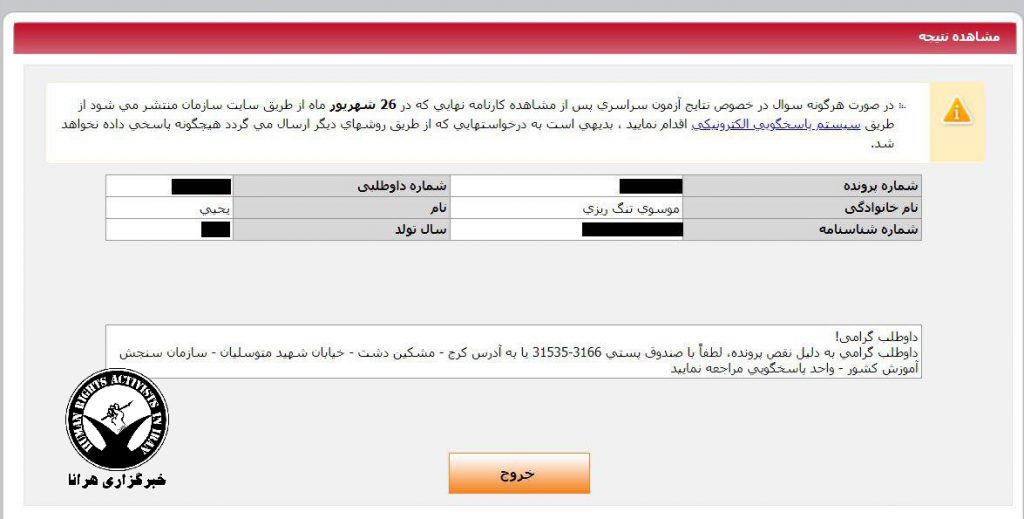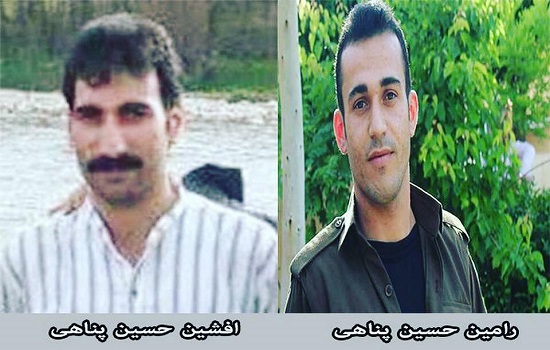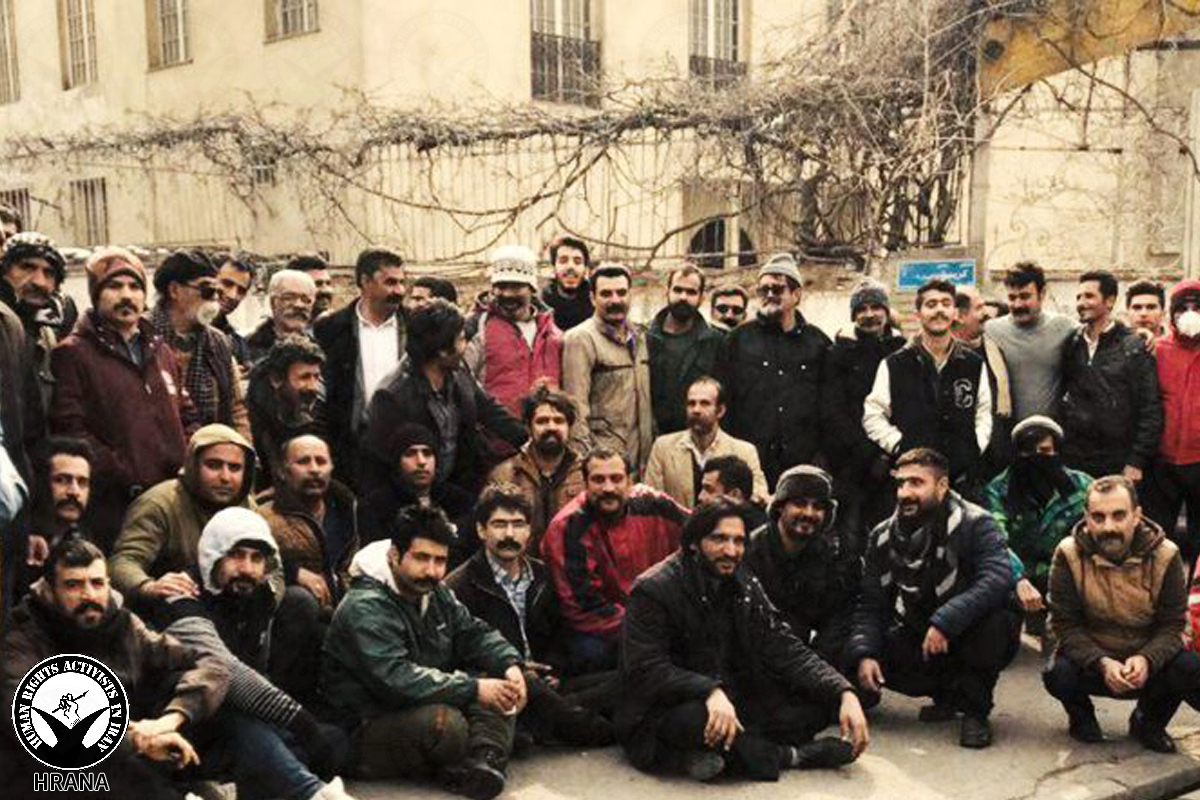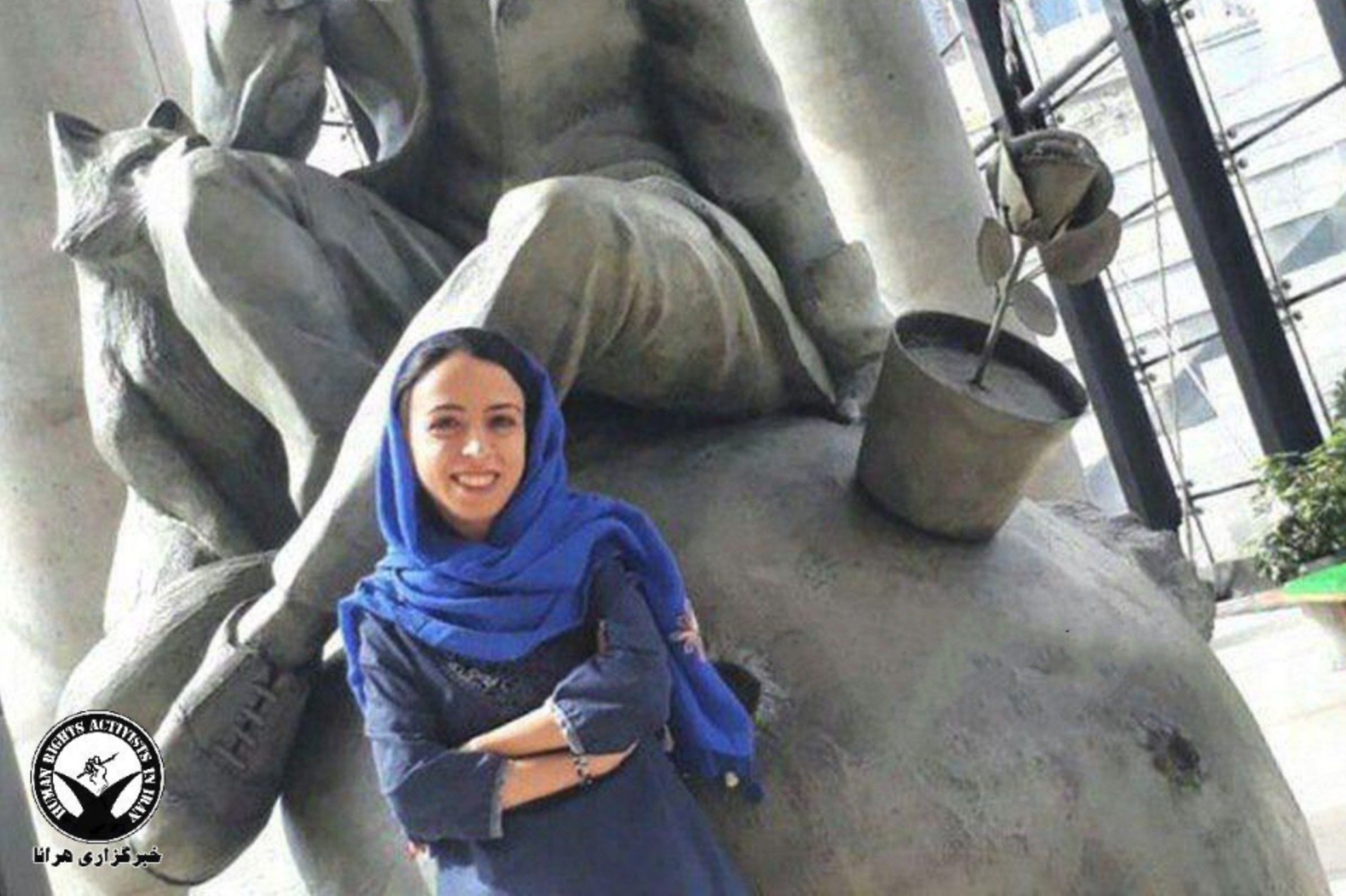Human Rights Activists News Agency (HRANA)- In the interest of obtaining Mohammad Habibi’s medical treatment and release from detainment, over 1400 Iranian civil and union activists have signed a letter to the attention Iran’s Supreme Leader, as his case steadily gains exposure with syndicates abroad.
Habibi, himself a union activist, educator, and member of the Teachers’ Union Association Board of Directors in the Province of Tehran, is currently serving a 10-year prison sentence ruled Saturday, August 4th in Branch 26 of Tehran Revolutionary Court. In addition to prison time, Habibi’s sentence included a two-years ban on civic activity, a two-year travel ban, and 74 lashings.
Since his detainment, Habibi’s requests for medical furlough have been repeatedly denied. On the one occasion his leave was granted, he was released from Great Tehran Penitentiary, prematurely dismissed from the hospital without receiving treatment, and then transferred to Evin on Monday, September 3, 2018, where he has remained since.
In one letter addressed to Ayatollah Ali Khamenei, the French trade unions SFDT, SGT, FSO, Solidaires, and UNSA called Habibi’s imprisonment a violation of both human rights and the fundamental freedoms of syndicates, and held the Supreme Leader accountable for his fate.
“Prison authorities continue to refuse him the medical treatment he sorely needs. Without proper care, his condition is at risk of rapid decline,” their letter reads. “We mean to impress upon you that as the Supreme Leader of the Islamic Republic of Iran, you are responsible for the life and health of Mohammad Habibi.”
The signatories of the Iranian letter below are currently at 1400 and steadily increasing. Its full text is below, translated into English by HRANA:
“The Noble People of Iran,
Dear Teachers,
Political, Civil, and Union Activists,
Sensible people of the world,
As you know, Mohammad Habibi — member of the board of directors of the Teachers’ Union Association of the Province of Tehran, and protector of the rights of students, retired educators, and currently working teachers– has been subjected to the hostility of authorities and unlawfully detained in the Great Tehran Penitentiary, weakened in body but vigorous in spirit, and was recently sentenced to ten and a half years in prison, a 2-year travel ban, and a 2-year ban on civic activity.
The verdict against this unionist, coupled with the sentences of fellow unionists and political and civil activists, betrays the will to choke freedom of speech with medieval punishments such as lashings, exile, and internment in prisons reminiscent of POW detainment centers– so many efforts to inject fear and trepidation into the civil activist’s drive for justice.
Habibi’s verdict is reminiscent of the heavy sentences imposed on student activists and of the lashes inflicted on Agh Tappeh mine workers, sentences that are the latent dread of every civic society.
These sentences are issued for teachers, workers, students, etc… meanwhile, the thieves, the embezzlers, and the corrupt, in comfort and security, violate and withhold the rights of ordinary people and laborers, continuously lowering the bar on their livelihood.
It is our human duty in such circumstances to raise our collective voice against these cruel punishments, in order to put an end to the imprisonment, flogging, and persecution of sick prisoners.
To intercept a looming human tragedy, the Defense Committee of Mohammad Habibi calls for his immediate medical admission, and with a greater sense of solidarity than ever before will continue to fight for his release as well as the release of other imprisoned teachers.
We call on all free and righteous people to protest the imprisonment and flogging of Mohammad Habibi, and that of other unionists and civil activists, starting with their signature on the “No to Prison and Flogging” petition. Hopefully, this year, Mohammad Habibi’s students will see him again in the classroom, and not behind the bars of a prison.”
****
On May 10, 2018, the Council for Coordination of Teaching Syndicates urged teachers, be they retired or employed, to assemble in protest across the country. In Tehran, several of those who responded to the call were arrested and transferred to Evin Prison; all but Habibi were released on bail three days later.
Mohammad was previously arrested at his workplace on March 3, 2018 and jailed for 44 days in Evin Prison. On April 15, 2018, he was released on a bail of approximately $20000 USD (2.5 Billion Rials) in wait of his trial the following August.



